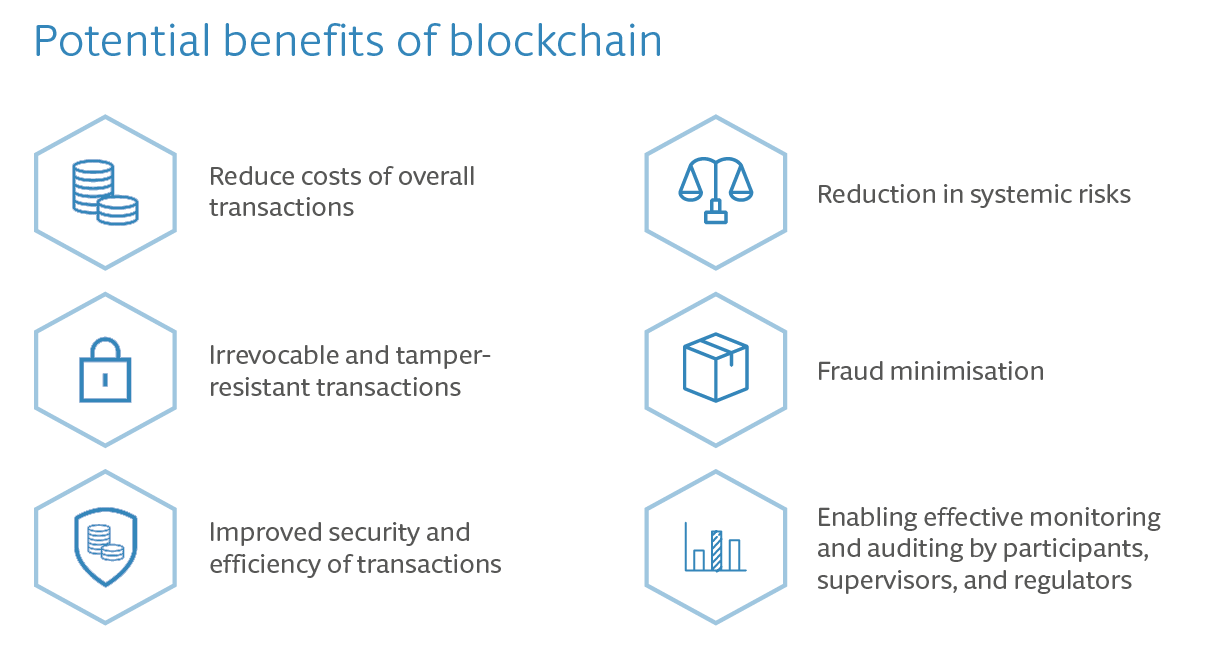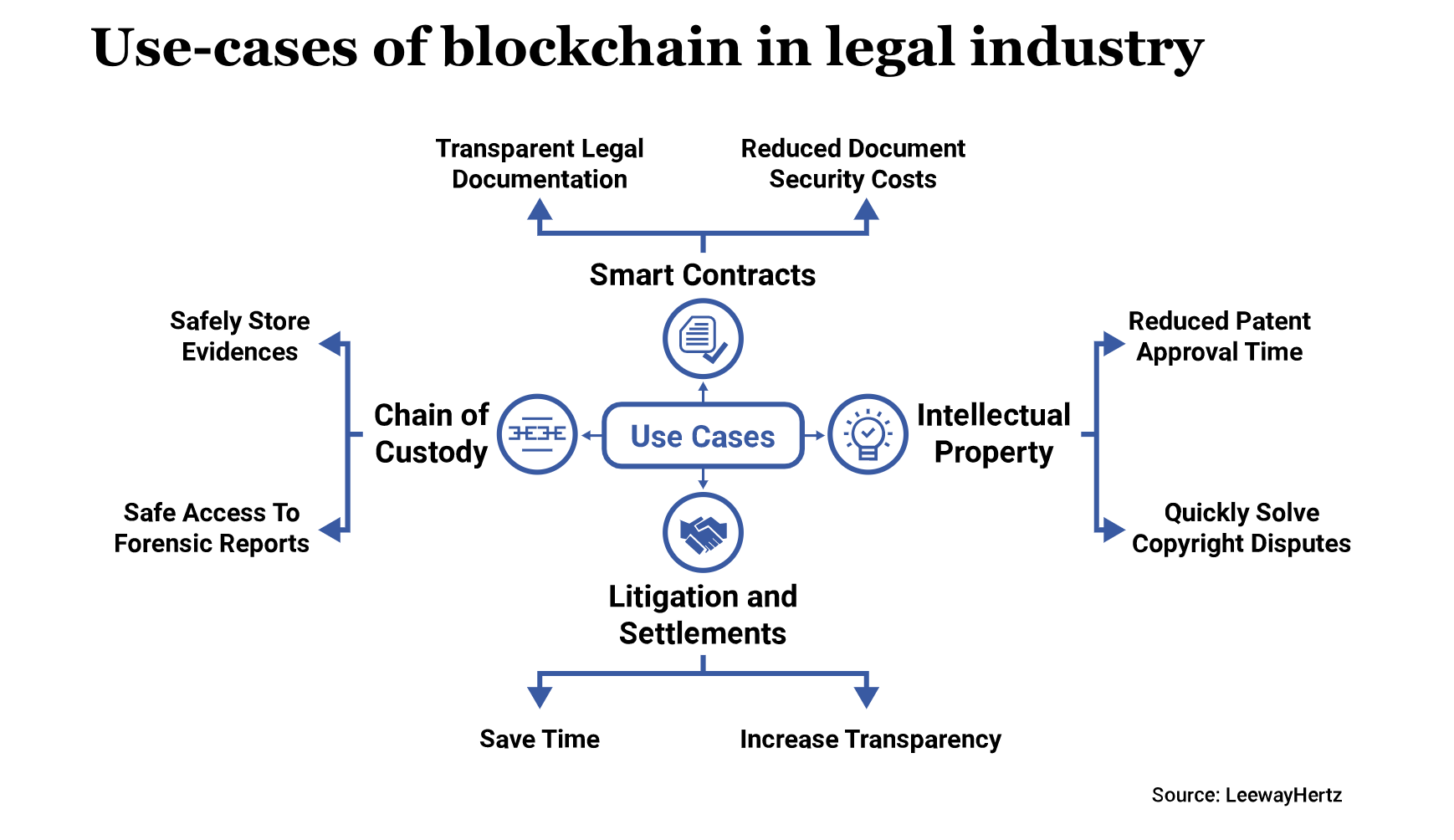Comments
- No comments found

Blockchain has the potential to improve law from smart contracts to digital identity and dispute resolution.
Adopting blockchain technology in the legal industry is a game changer. Blockchain is a distributed ledger technology that allows for secure, transparent, and tamper-proof transactions.
It is the underlying technology behind Bitcoin and other cryptocurrencies, but it has the potential to be used in a variety of other applications, such as supply chain management and financial services.

Blockchain is still a relatively new technology, but it is already being used by some of the world's largest companies. In the future, blockchain is likely to have a major impact on many industries, from finance to healthcare to government.
This article will explore the future of blockchain in law and discuss some of the potential applications of this technology.
Blockchain has the potential to revolutionize the legal industry in a number of ways. Here are just a few of the potential applications of this technology:
Contract management: Blockchain can be used to create smart contracts, which are self-executing contracts that are stored on a blockchain. Smart contracts can automate many of the tasks that are currently handled by lawyers, such as contract negotiation and execution.
Dispute resolution: Blockchain can be used to create decentralized dispute resolution systems, which allow parties to resolve disputes without the need for a third-party arbitrator. These systems can be more efficient and cost-effective than traditional dispute resolution methods.
E-discovery: Blockchain can be used to store and manage electronic evidence. This can help to improve the efficiency and accuracy of e-discovery processes.
Intellectual property: Blockchain can be used to track and manage intellectual property rights. This can help to protect intellectual property from infringement.
Compliance: Blockchain can be used to track and manage compliance with regulations. This can help to reduce the risk of non-compliance and associated penalties.
These are just a few of the potential applications of blockchain in law. As this technology continues to develop, it is likely to have an even greater impact on the legal industry.
Blockchain technology has several potential advantages in the field of law, including:

Increased efficiency: Blockchain technology can streamline many legal processes, such as contract drafting and management, by automating certain tasks and reducing the need for intermediaries. This can lead to faster and more efficient legal transactions.
Enhanced security: Blockchain is a highly secure and tamper-proof system, making it ideal for storing sensitive legal information and documents. The decentralized nature of blockchain also means that there is no single point of failure, making it more resistant to cyber attacks.
Increased transparency: Blockchain's transparent and immutable nature means that all parties involved in a legal transaction can have access to the same information in real-time. This can reduce disputes and increase trust between parties.
Smart contracts: Smart contracts are self-executing contracts that can be programmed on blockchain. They can automatically enforce the terms of a contract, reducing the need for intermediaries and increasing efficiency.
Reduced costs: Blockchain technology has the potential to reduce the costs associated with legal transactions by eliminating intermediaries, reducing the need for manual processes, and reducing the risk of errors and disputes.
The use of blockchain technology in law has the potential to increase efficiency, enhance security, increase transparency, enable smart contracts, and reduce costs.
While blockchain has the potential to revolutionize the legal industry, there are also some challenges that need to be addressed. Here are some of the challenges of blockchain in law:
Legal and regulatory uncertainty: The legal and regulatory landscape surrounding blockchain technology is still evolving, which can create uncertainty for businesses and individuals looking to use blockchain in legal transactions.
Integration with existing systems: Many legal systems and processes are still paper-based or rely on traditional electronic systems, which can make it difficult to integrate blockchain technology. This can also create interoperability issues between different blockchain platforms.
Security and privacy concerns: While blockchain is a highly secure and tamper-proof system, there are still concerns around the security and privacy of sensitive legal information and documents stored on blockchain.
Technical complexity: Blockchain technology can be complex and difficult to understand for non-technical users. This can make it challenging for lawyers and other legal professionals to adopt and integrate blockchain technology into their workflows.
Lack of standardization: There are currently no standardized protocols or standards for blockchain technology in law, which can create interoperability issues and make it difficult to ensure compatibility between different blockchain platforms.
Despite these challenges, blockchain is a promising technology with the potential to change the legal industry. As this technology continues to develop, it is likely to overcome these challenges and have a major impact on the legal landscape.
Blockchain is a powerful technology with the potential to revolutionize the legal industry. While there are some challenges that need to be addressed, blockchain is likely to have a major impact on the legal landscape in the future.

The future of blockchain in law is promising, and there are several areas where blockchain technology could have a significant impact. Here are some of the potential future developments for blockchain in law:
Smart contracts: Smart contracts are self-executing contracts that can be programmed on blockchain. They have the potential to automate many legal processes and reduce the need for intermediaries, resulting in faster and more efficient transactions.
Digital identity: Blockchain technology can be used to create a secure and tamper-proof digital identity system. This could be particularly useful in the legal industry, where identity verification is crucial for many transactions.
Document management: Blockchain can be used to create a secure and transparent document management system. This could streamline the process of drafting and managing legal documents, reducing the risk of errors and disputes.
Dispute resolution: Blockchain technology has the potential to enable new forms of dispute resolution, such as online dispute resolution (ODR) and decentralized arbitration. This could make dispute resolution faster, cheaper, and more accessible for individuals and businesses.
Supply chain management: Blockchain technology can be used to create a transparent and secure supply chain management system, which could be particularly useful in industries where provenance and authenticity are important, such as the food and pharmaceutical industries.
The future of blockchain in law is likely to be characterized by the further development of smart contracts, digital identity systems, document management systems, and dispute resolution mechanisms. As blockchain technology continues to mature and evolve, it is likely to play an increasingly important role in the legal industry.
Leave your comments
Post comment as a guest